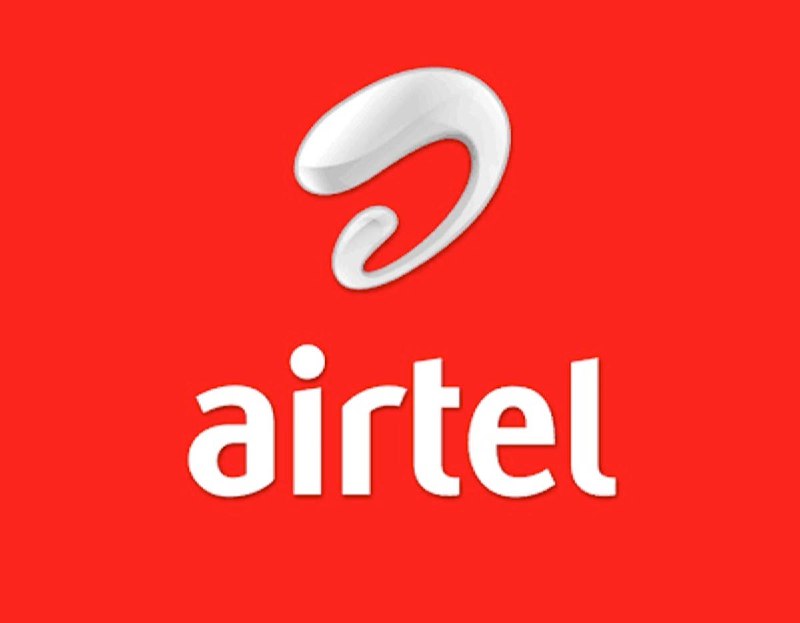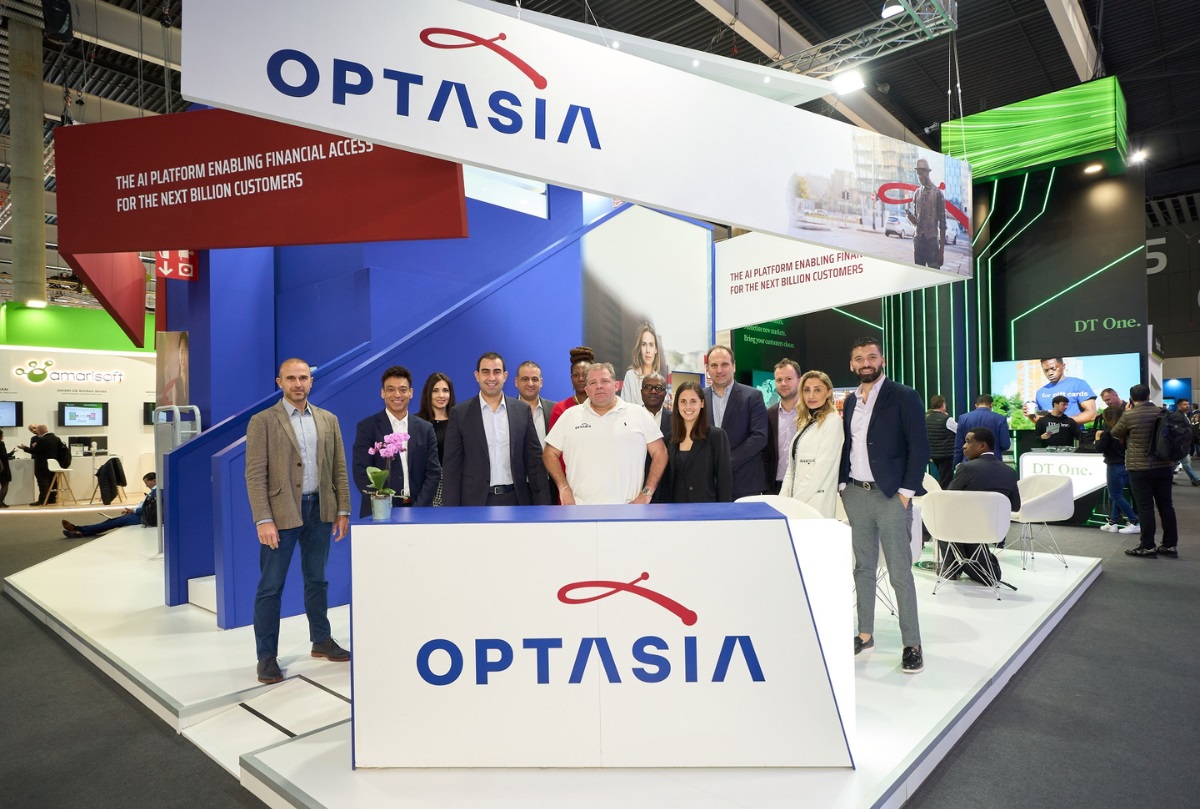Technology
Full Text of Prof Osinbajo’s Speech at Google for Nigeria Event
I am delighted to be to be here with you today at this year’s Google for Nigeria event. Just couple weeks back, it was a special pleasure to be welcomed to the Googleplex by Google CEO, Sundar Pichai and his great management team. We all have very warm memories of that visit, and I am truly grateful for your kindness and warm hospitality.
About three months ago, I spoke at an event at the Warwick University on the subject “The African Century.” The substance of that speech was that this century is Africa’s century. Why? Because Africa will, for good or ill, play the defining role in global development. Africa’s fortunes will matter across all the trends shaping the world. I say for good or for ill because either scenario is possible. If Africa fails on these important development issues, because of our sheer size, the global impact will be catastrophic and if it succeeds the global impact will be incredible.
In at least four important respects, Africa will hold the balance of world development. First is in world population (demography). Second is environment and climate change. Third is productivity. Fourth is social exclusion (or inclusion as the case may be) and its implications for global security.
Let’s take population, by 2035, Africa will have 1.2 billion people. Nigeria is Africa most populous country; she will become the 4th most populous nation in the world. Over 50% of that number will be young persons under the age of 25. Today, 60 percent of the unemployed in Africa are young people. If we do not change the trajectory of socio-economic development, we would have millions of jobless young people in the prime of their lives, and as we will see, largely illiterate and /or poorly trained. The workforce will be ill-equipped to man any industrial revolution or take advantage on scale of technology. The anger, disillusionment, and hopelessness of these young people will drive social unrest, compel more desperate migration northwards and present a fertile recruiting ground for extremist groups. If social conditions remain tenuous, even the well-educated will be tempted into migration and contribute further to the brain drain.
How about the environment and climate change? So, it is generally agreed that although Africa has contributed least to global warming, it is and will suffer most from its consequences. Indeed, we are already seeing extreme weather events such as flash floods, drought, and desertification.
So to cut a long story short, Africa is confronted with existential challenges, and there is simply no time to waste in resolving these problems. The answer that providence has given us is technology. The great purveyors of technology such as our hosts today Google, and their collaborators – 21st century Technologies Limited and Backbone Connectivity Network (BCN), are not mere corporations in search of profit and some social good, they literarily hold the future of generations of humanity in their hands.
In Nigeria, we cannot train our nearly 200 million young people by 2045, in classrooms alone. It is impossible! We must use the internet and even mobile telephony. We must connect our young people to knowledge and innovation all over the world. Co-creation efforts of innovators and inventors require broadband to be consummated.
So without connectivity, the development trajectory of our nation and continent is truncated. Today, it is also becoming increasingly clear that the availability of food and healthcare for the huge numbers of our people will depend on how democratized the technology becomes. We simply cannot provide enough food, drugs or vaccines in Africa without the availability of innovation in agriculture, and technology in farming and the production of drugs and vaccines. So democratizing Artificial Intelligence as we heard Marvin Chow, Google’s VP Product Marketing, describe in agriculture and the medical sciences, will change the human development story.
Indeed every step that is taken to democratize technology is a quantum leap in the African development story and a major contribution to Global stability and growth. This is why the launch of Google Station here in Nigeria, is an enormously significant event.
First, it means that Google and 21st Century, will be providing free WiFi access in several public spaces in Nigeria, more exciting is that several of our markets will benefit from this free internet access.
This partnership is particularly important to us, because we have in the past one year, in our energizing markets project, been providing solar power to markets and economic clusters across the country. We have done extensive work in Ariaria market in Aba, Sabongari in Kano, Gbagi market in Ibadan, Sura here in Lagos, and we are starting out in Iponri, and Balogun markets.
But the most profound implication is that internet access is becoming available to some of the poorest in society. What access to information, tools of education, business or commerce means is that gaps of inequality and exclusion are bridged. Jobs are created and in many important respects, there is a real chance of better quality of life for large numbers of our people.
Millions of Nigerians have personal stories of how the Internet has transformed their lives, their hustle, as today’s theme alludes to, in positive ways. And Juliet Ehimuan, Google’s Country Director Nigeria, has showed us, with stories of real people like Adaobi, how Google has featured prominently in many of these stories.
In 2016, working with the Office of the Senior Special Assistant to the President on SDGs, I launched the Google Digital Skills Training Programme with the target to train 400,000 Nigerians on basic Digital Skills, working with Google and local Nigerian Tech Training companies.
We have since surpassed those numbers and trained over a million Nigerians in basic digital skills in the last 24 months.
To scale up our support to private sector players in the technology space, I recently inaugurated the Technology and Creative Advisory Group, a subset of our National Industrial Policy and Competitiveness Advisory Council.
This group brings together, young private sector players in the technology and creative sectors and relevant government agencies, working jointly to formulate policies, programmes and projects for the Technology and Creative sectors of our economy.
Some private sector members of the Advisory Group and relevant government agencies like NITDA, NEPC and the Bank of Industry, went with me on the trip to Silicon Valley. Also on that trip, I met with the creative sector in Los Angeles and showcased Nigeria’s readiness and preparedness for investment, and the work we are doing with our Ease of Doing Business Secretariat, to provide an enabling environment for business in Nigeria, and which helped Nigeria rise 24 places on the World Bank’s Ease of Doing Business Index in 2017.
Through the GEM Project of the World Bank, the Federal Government has given out over $2million to 79 startups across the country. Apart from this, our National Social Investments Programme is working with the National Information Technology Development Agency (NITDA) to support the private sector to establish technology and innovation centers across the country.
We have established and launched these Innovation Hub projects across the nation. From the Ventures Platform in Abuja (Ventures Park), to the Marydel Hubs and the Edo State Government’s Edo Innovate project in Benin, Edo State, and the Humanitarian Innovation Center in collaboration with the North East Innovation Hub and the International Committee of the Red Cross (ICRC) in Yola, Adamawa State, we are committed to building an ecosystem to drive innovation.
The Federal Government is now investing in training 5,000 developers as part of our N-Power Tech program, just as we are catalyzing a whole new sector of animation production by training 3,000 young people with scriptwriting, storyboarding, voice acting, animation and post-production skills. Not only will we develop their skills, we are providing an initial support of the hardware and software tools that will help them function economically after they are trained. We also believe that starting earlier with our students helps to solve tomorrow’s challenges, today. The Federal Government is lending support to initiatives such as the Civic Lab’s Student Innovation Challenge, and the Campus Innovation Challenge by Union and CC Hub, Nigeria’s pioneer Tech Hub in Yaba, Lagos State, to discover and support student entrepreneurs in our tertiary institutions.
Next week, I will launch a Climate Innovation Center in partnership with the Enterprise Development Center at the Lagos Business School. This forms part of our ICT roadmap, in which the private sector is an important stakeholder.
The challenge remains connectivity, extending broadband reach, making data cheaper – National Broadband Policy. As a first[1] step, the Federal Government, through the Nigeria Communications Commission (NCC), has since licensed a number of Infrastructure Companies (Infracos), who will invest in rolling out broadband infrastructure across Nigeria.
I believe we can extend broadband reach significantly in a year or two. We will partner in whatever way we can with Google and Nigerian broadband providers like 21st Century Technologies Limited and Backbone Connectivity Network, to quickly achieve extensive broadband coverage.
Our goal is to create a data-driven digital economy; one that will lead the way not just in Africa, but globally as well. And I believe strongly that Nigeria is on the right path. We have the people, the talent, we have a government that sees the potential very clearly, and is showing the determination to unlock that potential.
Technology has put great power into our hands, as individuals, but more importantly as co-creators and collaborators, to positively and dramatically change the course of human existence. With it, we can solve many of the problems that confront us.
In addition, we can connect people, grow businesses, influence good governance, and create better lives, and a better country for ourselves and for the future.
Thank you.
Technology
Airtel Nigeria to Lead Next Phase of Telecoms Growth With Quality of Service Advancements

Airtel Nigeria has unveiled a robust update on a range of network, infrastructure and technology advancements that position the company at the forefront of quality of service leadership in Nigeria’s telecommunications industry. Announced at its first media roundtable of 2026, the updates reflect sustained investments made over the past 12 to 24 months and signal an accelerated push to stay ahead of surging data demand in a rapidly digitising economy.
Speaking to senior editors and industry correspondents, Airtel Nigeria Chief Executive Officer, Dinesh Balsingh, said the company’s strategy is anchored on deliberate scale, depth and resilience.
“Over the last two years, we have invested with discipline and clarity to strengthen our network nationwide. Those investments are now translating into measurable improvements in performance, customer experience and reach, including in underserved and hard to reach communities,” he said. “In 2026, we are accelerating these upgrades because Nigeria’s data appetite is growing, and leadership in this industry will belong to those who plan ahead.”
At the core of Airtel Nigeria’s quality of service drive is the rapid expansion of its network footprint. Since December 2023, the company has increased the number of network sites by 15.5%, adding 2,242 new sites and bringing its total to nearly 16,711 nationwide. Further deployments are planned in 2026 to strengthen coverage, capacity and resilience across urban and rural locations.
Network capacity upgrades have also reached a significant scale. In 2025, Airtel completed capacity enhancements on 30% of its sites, covering over 5032 sites nationwide. Today, 99% of Airtel Nigeria’s sites deliver high-speed 4G mobile broadband, establishing the operator as a full nationwide 4G network. This year, capacity upgrades are being extended to more sites to sustain performance as data usage continues to rise.
According to Chief Technology Officer, Harmanpreet Singh Dhillon, spectrum depth and optimisation remain critical to network quality. “We have increased our 4G spectrum by 10MHz and we are actively optimising our holdings. These actions allow us to support higher data throughput, better speeds and more consistent service, especially in high-traffic areas,” he said.
Airtel Nigeria is also accelerating its 5G rollout. Over the last three months, the company has more than doubled the number of active 5G sites. The accelerated 5G upgrade happening now will connect the top 20 Nigerian cities to high-speed 5G networks, with a significant part of Airtel’s network in these cities becoming 5G-enabled in the coming year.
Beyond terrestrial infrastructure, Airtel is extending connectivity through space-based solutions. The company has established and signed partnerships with satellite providers OneWeb and Starlink, enabling enterprise-grade connectivity for businesses in remote locations, hard-to-reach areas and operational outposts. Recently, Airtel announced Nigeria’s first Direct-to-Cell partnership with Starlink, a breakthrough that will allow customers to remain connected while travelling through deep remote areas and enable small rural communities to access Airtel’s digital and fintech services.
The backbone supporting these services continues to expand. Airtel Nigeria has built an extensive fibre footprint across almost all states, developed through years of sustained deployment. Following the announcement to double capital expenditure last year, the company committed to expanding its fibre network by 25%, and intensive rollout activity is ongoing across cities and states. Airtel has also confirmed plans to extend its fibre footprint even further, both within major cities and between states.
A pivotal national milestone is also on the horizon. Nigeria currently relies on a single internet submarine cable landing and breakout point in Lagos. Airtel Nigeria has announced that it will launch a second internet breakout from the South of Nigeria, leveraging the 2Africa submarine cable. In partnership with 2Africa, Airtel will shortly begin carrying internet breakout traffic from Kwa Ibo in Akwa Ibom State.
“This will create a faster and alternative path for large parts of the North and South, and improve resilience for the entire ecosystem. Airtel is proud to take the lead in making this happen,” Balsingh said.
Underpinning these advances is a robust IT and cloud backbone. Airtel Nigeria operates an enterprise-grade private cloud with thousands of virtual machines, managing massive storage and compute power across locations. The infrastructure includes large GPU clusters, supporting AI-driven applications such as fraud detection, intelligent network self-healing and advanced customer analytics. The company recently announced the upcoming launch of its hyperscaler-ready 38 megawatt data centre in Eko Atlantic. This is designed for Nigeria’s next phase of digital growth, powered by AI.
From a customer access perspective, Airtel Nigeria maintains one of the largest retail footprints in the country. Its products and services are available in over 200,000 outlets nationwide, supported by more than 4,000 exclusive shops across all local government areas and 250 flagship stores.
Balsingh added that, “Quality of service today is about resilience, redundancy and intelligence, and that is what Airtel is delivering. From fibre to cloud to satellite-enabled connectivity, we are building a platform that allows Nigerian businesses to scale with confidence, regardless of location.”
He reaffirmed Airtel Nigeria’s long-term commitment to the country. “Our focus is consistent investment, disciplined execution and deep confidence in Nigeria’s future,” he said.
Aside from Singh Dhillon, other members of the Airtel Nigeria leadership on hand with subject matter expertise at the roundtable included Director, Airtel Business, Ogo Ofomata; Director, Marketing, Ismail Adeshina; Director, Information Technology, Kemi Ariyo; and Director, Corporate Communications and CSR, Femi Adeniran.
Technology
Optasia Commits to Compliance, Ethical Data Use, Respect for Consumer Privacy

By Modupe Gbadeyanka
A global AI-driven fintech platform providing Micro Financing Solutions (MFS) and Airtime Credit Solutions (ACS) to underbanked individuals in 38 countries, Optasia, has reaffirmed its commitment to building long-term confidence across the digital ecosystem through “compliance, ethical data use and respect for consumer privacy.”
At the National Data Privacy Summit to celebrate Nigeria’s National Privacy Week 2026 in Abuja recently, the Chief Commercial Officer of Optasia, Ms Uchenna Agbo, highlighted the heightened responsibility that accompanies rapid digital growth.
“As Nigeria’s digital economy expands, the data that powers innovation and inclusion must be protected with the same seriousness as financial capital,” she said.
Optasia was the official partner of the event themed Privacy in the Era of Emerging Technologies: Trust, Ethics & Innovation.
The seminar brought together regulators, financial institutions and technology leaders. It was convened in line with the Nigeria Data Protection Act (NDPA), which safeguards personal information across the country.
The chief executive of the Nigeria Data Protection Commission (NDPC), Mr Vincent Olatunji, in his speech, underscored the central role of privacy in building trust and unlocking sustainable digital growth.
“Privacy is not an isolated privilege; it is a fundamental right guaranteed by our Constitution. By building trust, we unlock the full potential of our digital economy and protect every Nigerian’s digital identity,” he submitted.
These priorities closely align with Optasia’s approach, as the company focuses on enabling inclusive digital financial services while embedding privacy, accountability and trust into its technology and partnerships.
As a company operating AI-powered financial services within highly regulated environments globally, Optasia brings practical experience in embedding governance, accountability and data protection into large-scale digital systems.
The organisation delivers its services exclusively through licensed financial institutions and regulated distribution partners, supporting the responsible expansion of digital financial services while maintaining robust standards of security and privacy.
Optasia’s SOC 2 Type II certification underscores its commitment to maintaining internationally recognised standards of security, confidentiality, and privacy.
Its Nigeria engagement is anchored in four operating priorities: privacy-by-design, responsible use of AI, innovation without intrusive data practices, and stronger collaboration across the licensed ecosystem.
Technology
The Future of AI Detector Technology in Content Review

AI-written content has already changed how people publish online. Articles, emails, and reports now pass through review systems before going live. Because of this shift, the role of an AI checker free continues to grow. Many users want to know what comes next and how these tools may affect writing in the coming years.
Future detection tools will look different from today’s versions. Current systems rely heavily on surface patterns. That approach is starting to break down as AI writing improves.
Detection Models Will Change Their Focus
Most detectors today analyze predictability and structure. This method worked when AI writing sounded repetitive. Newer AI models now produce varied output. Simple pattern checks will lose value over time.
Future systems will rely more on comparison than pattern spotting. Models may compare writing against known human samples instead of fixed rules. This shift could reduce random false flags.
Context awareness will also improve. Detection tools may evaluate topic flow instead of isolated sentences. That change could help reviewers understand content better.
Training Data Will Update More Frequently
Training data controls detection quality. Older datasets already struggle with newer AI models. Future tools will update training material more often.
More human writing styles will enter training systems. Blogs, emails, and informal writing will receive better representation. This change may reduce bias against simple language.
AI-generated samples will also diversify. Detection systems must understand modern AI behavior. Without frequent updates, reliability will continue to drop.
Scores Will Become Less Central
Percentage scores cause stress for many users. These numbers often create confusion instead of clarity. Future tools may move away from strict scoring.
Visual feedback could replace raw percentages. Highlighted sections may show why something looks artificial. This approach supports editing without panic.
Content reviewers will likely focus on explanation instead of judgment. Guidance helps writers improve clarity rather than chase numbers.
Editing Tools Will Influence Detection Design
Editing tools already affect detection outcomes. A paraphrasing tool can change surface structure without changing meaning. Future detectors may learn to separate helpful edits from mechanical rewriting.
Systems may track rewrite behavior more carefully. Heavy automated paraphrasing may become easier to spot. Manual editing could receive more tolerance.
A summarizer removes depth and context. Detection tools may begin flagging overly compressed structures rather than labeling the entire text. This change would support fairer review.
A grammar checker also affects future detection. Perfect structure often triggers suspicion today. New detectors may learn that clean grammar does not equal automation.
Review Workflows Will Become More Human-Centered
Future content review will likely combine tools and people more closely. Detection systems will guide attention rather than decide outcomes.
Editors may use detection as a starting point. Human review will confirm relevance and intent. This balance protects writing quality.
Writers will also gain clearer feedback. Instead of rewriting blindly, they will understand why something appears artificial.
Regulation and Ethics Will Shape Development
Legal and educational pressure already influences detector design. Schools and publishers demand fairness. Future systems must reduce bias to remain trusted.
Non-native writers face unfair flags today. Improved training may reduce these errors. Ethical design will matter more than raw accuracy.
Transparency will also increase. Users will expect explanations for results. Black-box decisions will lose acceptance.
Limitations Will Still Exist
No detection system will ever confirm authorship with certainty. Human writing varies endlessly. AI writing continues to evolve rapidly.
Future tools may become better guides. They will never replace judgment. Understanding limits will remain essential.
What Writers Should Expect Going Forward
Writers should prepare for guidance-based tools. Detection will assist editing rather than enforce rules. A calm review will replace fear-driven checking.
Natural writing will remain important. Clear ideas still matter more than technical scores. Tools will support this approach rather than punish it.
Final Thoughts
The future of the AI detector points toward smarter review, not stricter judgment. Pattern chasing will fade as context gains importance. Writers and editors will benefit from clearer feedback and fewer false alarms.
Content review will stay human-led. Technology will assist quietly. That balance will define the next phase of writing review.
-

 Feature/OPED6 years ago
Feature/OPED6 years agoDavos was Different this year
-
Travel/Tourism9 years ago
Lagos Seals Western Lodge Hotel In Ikorodu
-

 Showbiz3 years ago
Showbiz3 years agoEstranged Lover Releases Videos of Empress Njamah Bathing
-

 Banking8 years ago
Banking8 years agoSort Codes of GTBank Branches in Nigeria
-

 Economy3 years ago
Economy3 years agoSubsidy Removal: CNG at N130 Per Litre Cheaper Than Petrol—IPMAN
-

 Banking3 years ago
Banking3 years agoSort Codes of UBA Branches in Nigeria
-

 Banking3 years ago
Banking3 years agoFirst Bank Announces Planned Downtime
-

 Sports3 years ago
Sports3 years agoHighest Paid Nigerian Footballer – How Much Do Nigerian Footballers Earn











